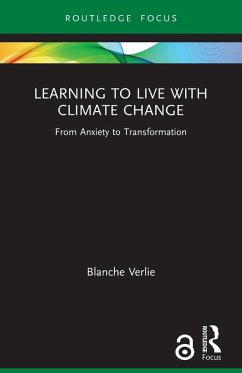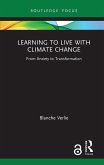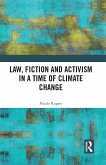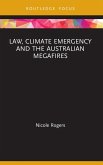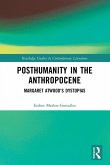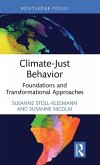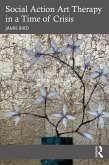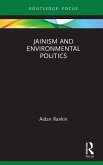This imaginative and empowering book explores the ways that our emotions entangle us with climate change and offers strategies for engaging with climate anxiety that can contribute to social transformation.
Climate educator Blanche Verlie draws on feminist, more-than-human and affect theories to argue that people in high-carbon societies need to learn to 'live-with' climate change: to appreciate that human lives are interconnected with the climate, and to cultivate the emotional capacities needed to respond to the climate crisis. Learning to Live with Climate Change explores the cultural, interpersonal and sociological dimensions of ecological distress. The book engages with Australia's 2019/2020 'Black Summer' of bushfires and smoke, undergraduate students' experiences of climate change, and contemporary activist movements such as the youth strikes for climate. Verlie outlines how we can collectively attune to, live with, and respond to the unsettling realities of climate collapse while counteracting domineering ideals of 'climate control.'
This impressive and timely work is both deeply philosophical and immediately practical. Its accessible style and real-world relevance ensure it will be valued by those researching, studying and working in diverse fields such as sustainability education, climate communication, human geography, cultural studies, environmental sociology and eco-psychology, as well as the broader public.
The Open Access version of this book, available at https://doi.org/10.4324/9780367441265, has been made available under a Creative Commons Attribution-Non Commercial-No Derivatives 4.0 license.
Climate educator Blanche Verlie draws on feminist, more-than-human and affect theories to argue that people in high-carbon societies need to learn to 'live-with' climate change: to appreciate that human lives are interconnected with the climate, and to cultivate the emotional capacities needed to respond to the climate crisis. Learning to Live with Climate Change explores the cultural, interpersonal and sociological dimensions of ecological distress. The book engages with Australia's 2019/2020 'Black Summer' of bushfires and smoke, undergraduate students' experiences of climate change, and contemporary activist movements such as the youth strikes for climate. Verlie outlines how we can collectively attune to, live with, and respond to the unsettling realities of climate collapse while counteracting domineering ideals of 'climate control.'
This impressive and timely work is both deeply philosophical and immediately practical. Its accessible style and real-world relevance ensure it will be valued by those researching, studying and working in diverse fields such as sustainability education, climate communication, human geography, cultural studies, environmental sociology and eco-psychology, as well as the broader public.
The Open Access version of this book, available at https://doi.org/10.4324/9780367441265, has been made available under a Creative Commons Attribution-Non Commercial-No Derivatives 4.0 license.
"Is climate change the teacher we need to help us learn to live? Perhaps counterintuitively, Verlie's answer is a resounding yes. Written for educators, young people, activists, community members, parents, researchers, and politicians-and anybody who is concerned about the fate of life on the planet- this book invites us to engage in an expansive, co-creative, and entangled relationship with climate, which Verlie defines as more a verb than a noun. This book aims more for courage, witness, and inspiration than resilience, adaptation, or coping, and outlines the faculties needed to bear, endure, and generate new worlds."
Sarah Jaquette Ray, author of A Field Guide to Climate Anxiety, and professor of environmental studies at Humboldt State University.
"Learning to live with Climate Change is a remarkable account of how climate change makes us feel and a powerful challenge to who we think we are. Verlie's accessible writing style deftly holds all of climate change's complexities without ever overwhelming us. Through careful attention to climate change's affective dimensions, Verlie charts a personal and collective pedagogical course for learning to live with what might otherwise seem impossible: finding inspiration, solidarity and renewed energy in the face of overwhelming crisis. Most importantly, reading this book made me want to go out and do more."
Astrida Neimanis, author of 'Bodies of Water: Posthuman Feminist Phenomenology' and Canada Research Chair in Feminist Environmental Humanities at UBC Okanagan.
"Blanche Verlie has written an insightful, moving and much needed book about the complex human response to climate change. It is an important contribution to the growing body of social science work on this topic, important too because reading it and engaging with her ideas enables us to develop strategies that can inspire and support people to engage with and respond to climate change."
Rebecca Huntley, author of How to Talk About Climate Change in a Way that Makes a Difference
"I see this as one of the most significant recent books on climate anxiety. This is a very high-quality work. It is a book in education in the classical sense: it con- sists of wide-ranging philosophical and practical discussions, not only depictions of methods and activities."
Panu Pihkala, University of Helsinki, book review in the Australian Journal of Environmental Education
"Some books or ideas become our companions, concepts we come to live with and use to experience and understand the world. Some have words so beautifully placed and ideas so timely borne that they frame how we bear our encounters. This book is full of such words, as Verlie writes with integrity and generosity, inviting us into dialogue, engagement, journey, and transformation. Verlie is giving words and concepts where they have been missing; powerfully naming experiences that are unnamed; and therefore giving meaning and witness to the experiences of bodies suffering with climate through ecological destruction. In many ways, this book is a guidebook for a journey we are all facing, whether we know it or not."
Charlotte Jones, University of Tasmania, book review in Geographical Research
"Blanche Verlie's book, Learning to Live with Climate Change is a must read for educators interested in developing situated and collective responses that support young people experiencing various climate change(s) in their everyday worlds. You won't find a recipe or a how-to list of tips and tricks to solve these worldly problems in this book. Instead, Verlie brings together practices of encountering, witnessing, and storying to highlight what becomes possible when working with embodied, relational, and affective practices for change."
Mindy Blaise, Professor and Co-director, Centre for People, Place & Planet, School of Education, Edith Cowan University
Sarah Jaquette Ray, author of A Field Guide to Climate Anxiety, and professor of environmental studies at Humboldt State University.
"Learning to live with Climate Change is a remarkable account of how climate change makes us feel and a powerful challenge to who we think we are. Verlie's accessible writing style deftly holds all of climate change's complexities without ever overwhelming us. Through careful attention to climate change's affective dimensions, Verlie charts a personal and collective pedagogical course for learning to live with what might otherwise seem impossible: finding inspiration, solidarity and renewed energy in the face of overwhelming crisis. Most importantly, reading this book made me want to go out and do more."
Astrida Neimanis, author of 'Bodies of Water: Posthuman Feminist Phenomenology' and Canada Research Chair in Feminist Environmental Humanities at UBC Okanagan.
"Blanche Verlie has written an insightful, moving and much needed book about the complex human response to climate change. It is an important contribution to the growing body of social science work on this topic, important too because reading it and engaging with her ideas enables us to develop strategies that can inspire and support people to engage with and respond to climate change."
Rebecca Huntley, author of How to Talk About Climate Change in a Way that Makes a Difference
"I see this as one of the most significant recent books on climate anxiety. This is a very high-quality work. It is a book in education in the classical sense: it con- sists of wide-ranging philosophical and practical discussions, not only depictions of methods and activities."
Panu Pihkala, University of Helsinki, book review in the Australian Journal of Environmental Education
"Some books or ideas become our companions, concepts we come to live with and use to experience and understand the world. Some have words so beautifully placed and ideas so timely borne that they frame how we bear our encounters. This book is full of such words, as Verlie writes with integrity and generosity, inviting us into dialogue, engagement, journey, and transformation. Verlie is giving words and concepts where they have been missing; powerfully naming experiences that are unnamed; and therefore giving meaning and witness to the experiences of bodies suffering with climate through ecological destruction. In many ways, this book is a guidebook for a journey we are all facing, whether we know it or not."
Charlotte Jones, University of Tasmania, book review in Geographical Research
"Blanche Verlie's book, Learning to Live with Climate Change is a must read for educators interested in developing situated and collective responses that support young people experiencing various climate change(s) in their everyday worlds. You won't find a recipe or a how-to list of tips and tricks to solve these worldly problems in this book. Instead, Verlie brings together practices of encountering, witnessing, and storying to highlight what becomes possible when working with embodied, relational, and affective practices for change."
Mindy Blaise, Professor and Co-director, Centre for People, Place & Planet, School of Education, Edith Cowan University

